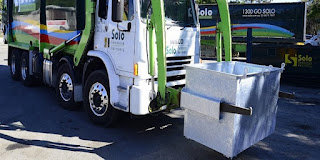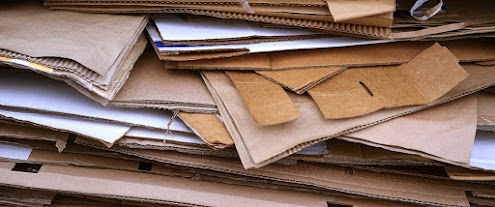What Happens To All The Electronic Waste? Learn Everything There Is To Know About E-Waste Recycling And How It Can Help You
The
Adelaide Waste and Recycling Centre (AWRC), one of Adelaide's waste management facilities, also specialises in e-waste
recycling. E-waste recycling refers to the recycling of electronic equipment
that has been discarded because it was unwanted, nearing the end of its useful
life, no longer in use, or broken. Printers, computers, televisions, phones,
and stereos are among the electronic components and equipment that contribute
to e-waste. Commercial e-waste includes massage chairs, broken dialysis
machines, autoclaves, imaging equipment, and other items. Daily e-waste
articles could be classified into the following categories:
- Home appliances
- Communications and Information Technology Devices
- Electronic Utilities
- Office and Medical Equipment
- Home Entertainment Devices
When
you look at the statistics of e-waste collected over the years, you'll notice
that the numbers have gotten surprisingly high, with a significant rate of
unwanted, but functional electronic equipment. For example, cell phone
manufacturers produce phones that are designed to last no more than two years
in order to increase sales. As a result, laws were enacted to manage and run
e-waste disposal, which has resulted in one of the world's most serious environmental
issues.
E-waste
recycling that is safe and secure has significant benefits for our global
economy. E-waste recycling begins in one's personal space and progresses to
large-scale manufacturing companies and offices.
What are the impacts of e-waste on our environment and
safety?
Toxic
elements found in many electronic devices include nickel, lead, chromium, and
zinc. The release of either of these elements into our environment will cause
health problems if they come into contact with us through oral contact or an
unintentional touch.
Inadequate
e-waste disposal, such as burning, releases toxic gases into the atmosphere,
destroying atmospheric layers. Landfilled e-waste begins to seep into
groundwater, causing a crisis for both sea animals and land. Many fish that die
from unusual causes have toxic substances in their bodies. Toxic substances
found in high-level e-waste that enter the soil kill plants, reducing
agricultural harvest. Humans and animals suffer from a lack of food in the
absence of a robust agricultural sector.
Because
toxic gases cause climatic changes such as global warming, the atmosphere
changes.
Even
as the difficulties associated with e-waste continue to grow, the recycling
sector has grown significantly. You may be able to identify various areas
around the world dedicated to e-waste recycling and providing employment to a
large number of people.
Environmental advantages of recycling electronic waste -
Ensure
that manufacturers have access to environmentally friendly resources.
When
you buy brand new electronic equipment, the plastic and metallic components
come from somewhere. When old electronic devices are discarded, the destructive
effect is multiplied: more plastic and metallic resources must be extracted,
and the trash harms our environment. Rather, recycling discarded e-waste in a
safe and secure manner protects the environment from over-exploitation and
redundant e-waste.
Stop
usage of landfills
Landfills
pose serious environmental risks to all living things, including plants,
animals, and, of course, humans. When you correctly recycle e-waste from your
homes and businesses, this waste ends up in the hands of waste management
workers, who dump it in landfills. After a while, the waste's plastic, toxic,
and metallic materials begin to seep through the landfill ground and into
nearby water sources.
The
more electronic waste that is not properly recycled, the greater the need for
landfills for disposal. One of the benefits of recycling e-waste is that it
reduces the number of landfills, which have a negative impact on our
environment, particularly water bodies. When you place your electronic waste in
the hands of experienced and reputable recyclers, such as the Adelaide Waste
and Recycling Centre (AWRC), you can be confident that appropriate care has
been taken to reuse components that can be recycled and reused.
Protect
water bodies from potential toxic waste poisoning
Toxic
chemicals are discharged into groundwater from landfills, where they find their
way into nearby freshwater bodies and wells. Before you know it, animals and
humans who rely on these bodies of water are becoming ill as a result of
chemical poisoning. Electronic waste recycling prevents a significant amount of
those toxic constituents from entering water bodies and ensures that the water
is safe and fresh. One of the benefits of recycling e-waste is that it helps to
keep our natural water sources clean.
Save
energy, save the land
The
primary production of metals from mining ores requires a significant amount of
land and energy. The environment is harmed when holes are drilled and dug
underground, and these areas are turned into wasteland. Do you believe that
lands with gaping pits and holes are appealing to our eyes? No, it isn't. When
it starts raining, some of these holes end up destabilising the nearby ground.
E-waste recycling helps
to reduce unending mining, allowing environmentalists around the world to save
energy and avoid land depletion. Energy is a resource that no one can afford to
waste, and obtaining it is a way of saying thank you to Mother Earth for her
precious gifts, and it is, in fact, one of the benefits of recycling e-waste.
So, if
you've been considering dumping bulk residential or commercial electronic
waste, contact Adelaide Waste and Recycling Centre for a quick assessment of
your e-waste and safe recycling. This way, you will only be doing your part to
help Mother Nature.




Comments
Post a Comment